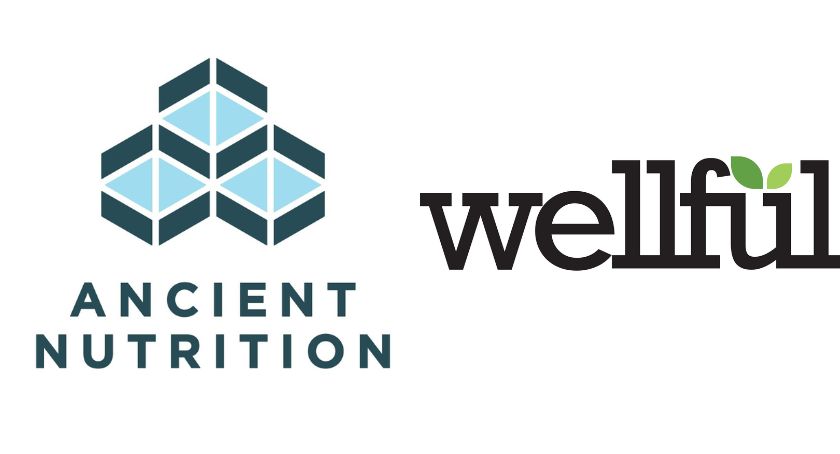Market Updates
Plant-Based Food Sales Surge to $7 Billion in 2020 on 27% Growth
The success of plant-based milk has laid the groundwork for major increases in sales of other categories across the store.

By: Sean Moloughney
Editor

U.S. retail sales of plant-based foods continued to increase by double digits in 2020, growing 27% to reach a market value of $7 billion, according to new data from the Plant Based Foods Association (PBFA) and the Good Food Institute (GFI).
This growth in dollar sales was consistent across the U.S., with more than 25% growth in every census region. The plant-based food market grew almost twice as fast as the total U.S. retail food market, which increased 15% in 2020 as COVID-19 shuttered restaurants and consumers stocked up on food amid lockdowns. Fifty-seven percent of households now purchase plant-based foods, up from 53% in 2019.
PBFA and GFI commissioned data from SPINS and custom refined it to reflect only plant-based products that directly replace animal-based products.
“The data tells us unequivocally that we are experiencing a fundamental shift as an ever-growing number of consumers are choosing foods that taste good and boost their health by incorporating plant-based foods into their diet,” said PBFA Senior Director of Retail Partnerships Julie Emmett. “As this industry surpasses the $7 billion threshold, PBFA is excited to continue our work to help build a sustainable infrastructure, including domestic ingredients sourcing, for this growing demand to expand access to plant-based foods.”
Meat
The value of plant-based meat—the second-largest plant-based category—hit $1.4 billion in 2020, with sales growing 45%, up from $962 million in 2019. The plant-based meat category grew twice as fast as conventional meat and now accounts for 2.7% of retail packaged meat sales.
Eighteen percent of U.S. households now purchase plant-based meat, up from 14% in 2019. Consumers are coming back for more; 63% of shoppers are high-repeat customers. Refrigerated plant-based meat sales grew 75% in 2020, with products increasingly shelved adjacent to conventional meat. This placement in the meat section helped propel growth in the segment, with refrigerated plant-based meat sales increasing more than twice as fast as frozen plant-based meat sales, which grew 30% in 2020—10 times faster than in 2019.
Milk
Plant-based milk—the largest plant-based category—has reached $2.5 billion and accounts for 35% of the total plant-based food market. Even as the most developed category, plant-based milk grew 20% in dollar sales, up from 5% in 2019. Plant-based milk grew twice as fast as cow’s milk and is now purchased by 39% of U.S. households.
Almond milk remains the category leader and accounts for about two thirds of plant-based milk dollar sales. Oat milk catapulted to the second-leading segment, ahead of soy milk, with sales more than tripling in 2020 and growing 25-fold since 2018. Plant-based product share of all conventional categories is increasing, with plant-based milk now making up 15% of the milk category, plant-based butter making up 7% of the butter category, and plant-based creamer making up 6% of the creamer category. While plant-based milk boasts a significant share of milk sales in all stores at 15%, it constitutes an even greater share of milk sales in natural food stores at 45%.
The success of plant-based milk has laid the groundwork for major increases in sales of other plant-based dairy products, which are collectively approaching $2 billion. Across the store, plant-based food dollar sales are growing faster than those of many conventional animal products. In 2020, plant-based yogurt grew 20%, almost seven times the rate of conventional yogurt; plant-based cheese grew 42%, almost twice the rate of conventional cheese; and plant-based eggs grew 168%, almost 10 times the rate of conventional eggs. The plant-based egg category grew more than 700% from 2018, 100 times the rate of conventional eggs.
Accelerated Market Interest
COVID-19 gave retail sales of plant-based foods an extra boost at a time when interest in the sector was already surging, driven by a focus among consumers on personal health, sustainability, food safety, and animal welfare. These factors will continue to propel consumption of plant-based foods far into the future.
According to Mintel, 35% of U.S. consumers agree with the statement “the COVID-19/coronavirus pandemic proves that humans need to eat fewer animals.” The market has responded by meeting consumer interests with plant-based claims on-pack rising 116% among U.S. food and drink introductions between 2018 and 2020.
“2020 was a breakout year for plant-based foods across the store,” said GFI Research Analyst Kyle Gaan. “The incredible growth we saw in plant-based foods overall, particularly plant-based meat, surpassed our expectations and is a clear sign of where consumer appetites are heading. Almost 40% of households now have plant-based milk in their fridge, and at this rate, it won’t be long until we see just as many households purchasing plant-based meat.”
SPINS Head of Retail Dawn Valandingham: “The plant-based category has evolved to the point that retailers can’t limit who they consider the plant-based shopper. They should now assume everyone is a potential plant-based buyer and educate them enough to see the possibilities. Between the innovation in plant-based products and the gradual return to less restrictive shopping measures, 2021 offers many opportunities for retailers to appeal to more customers and expand their plant-based offerings.”
Methodology
GFI and PBFA commissioned total retail food sales data from SPINS, a wellness-focused data technology company, having refined the existing SPINS plant-based categories to reflect foods derived from plants that provide direct replacements for animal products (meat, seafood, dairy, and eggs). Inherently plant-based foods, such as chickpeas and kale, are not included. Due to the custom nature of these categories, the retail data presented in this report will not align with standard SPINS categories. SPINS obtained the data over the 52-week and 104-week periods ending Dec. 27, 2020, from the SPINS Natural Enhanced and Conventional Multi Outlet (powered by IRI) grocery channels.
To understand consumer purchasing dynamics and demographics, GFI and PBFA also commissioned consumer panel data from SPINS based on the same custom plant-based categories. SPINS acquires its panel data through the National Consumer Panel, a Nielsen and IRI joint venture composed of roughly 100,000 households. SPINS obtained the data over the 52-week period ending Dec. 27, 2020, and the 52-week period ending Dec. 29, 2019, from all U.S. outlets.
Sean Moloughney has been the Editor of Nutraceuticals World since 2012. He can be reached at SMoloughney@RodmanMedia.com.




















